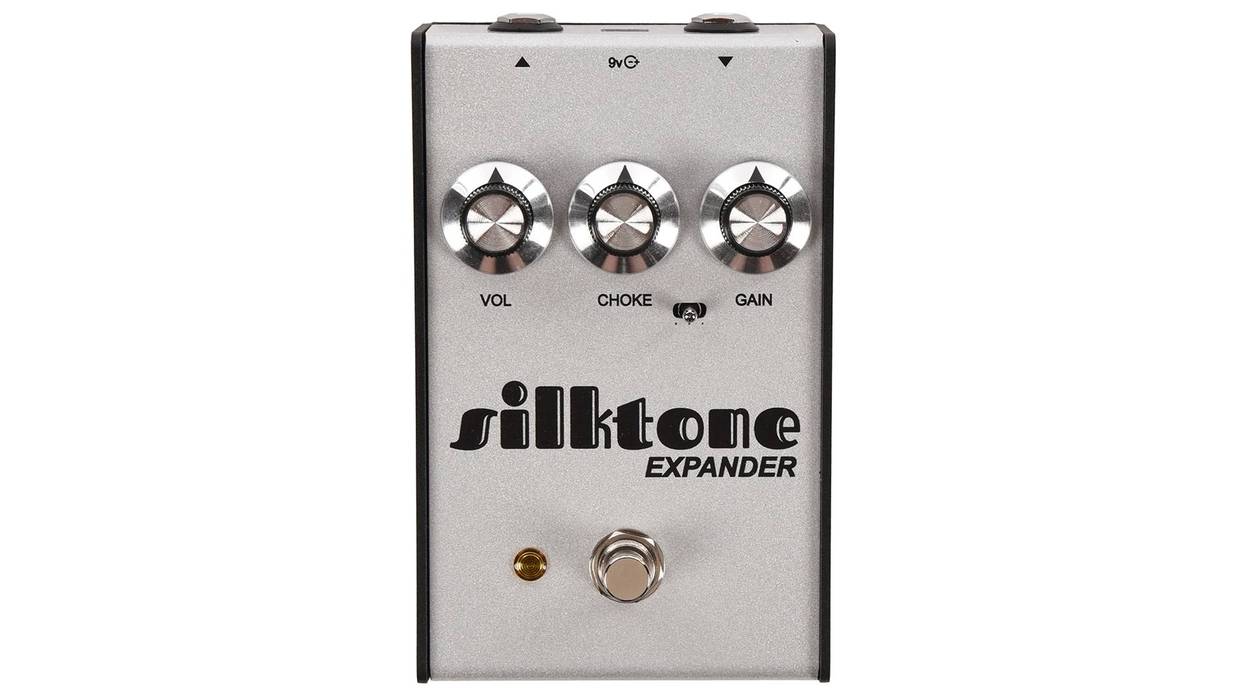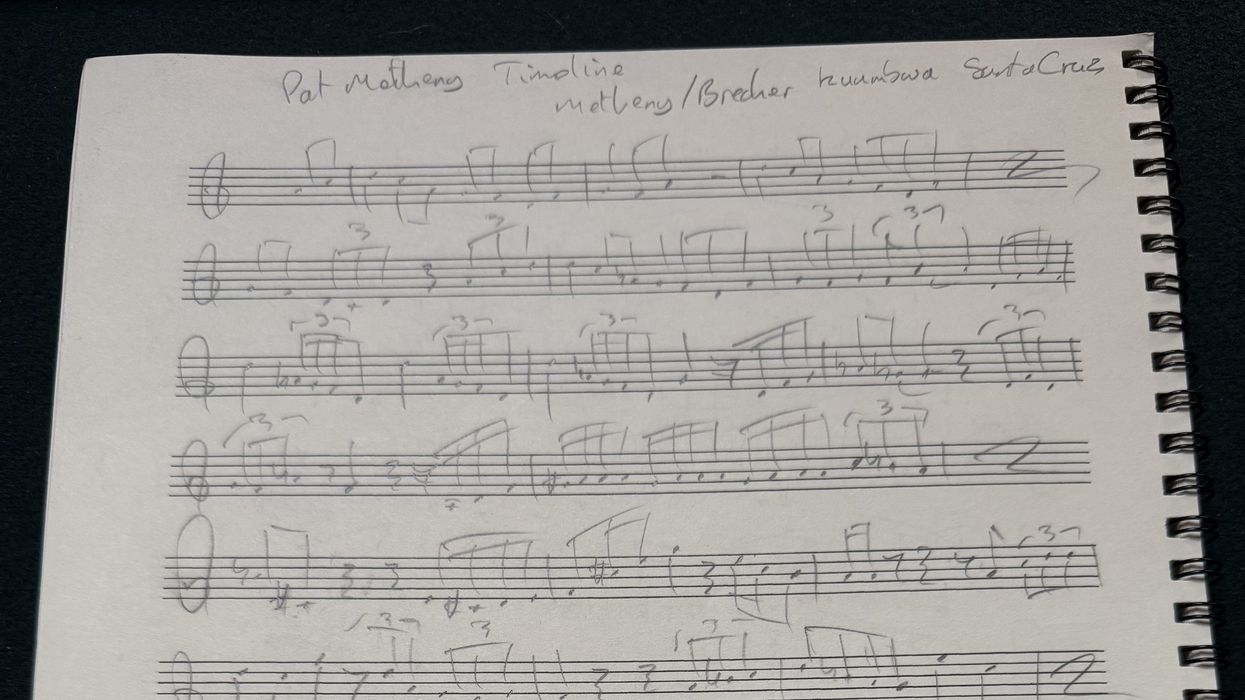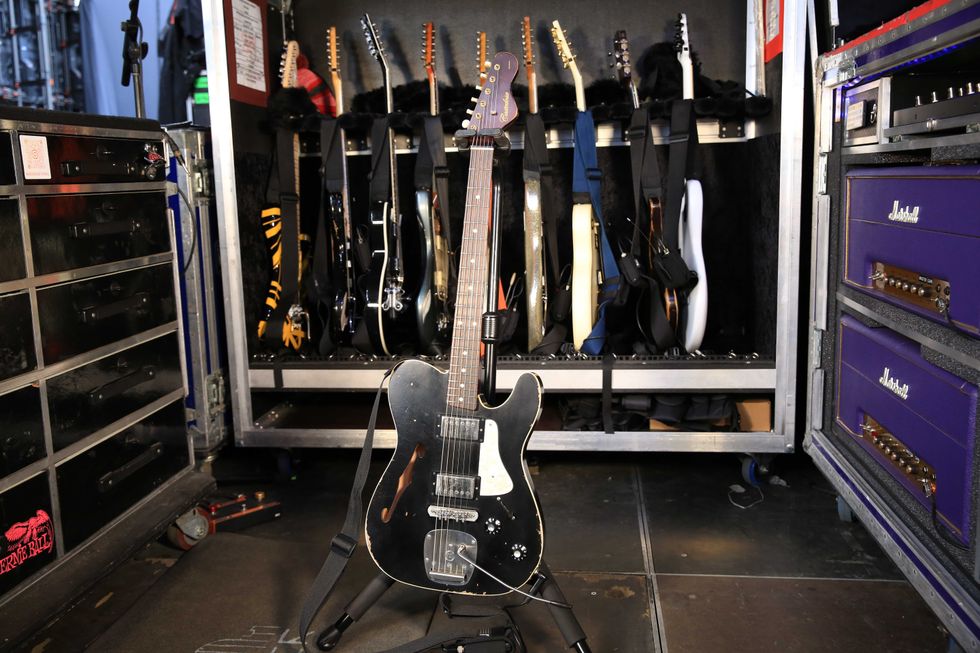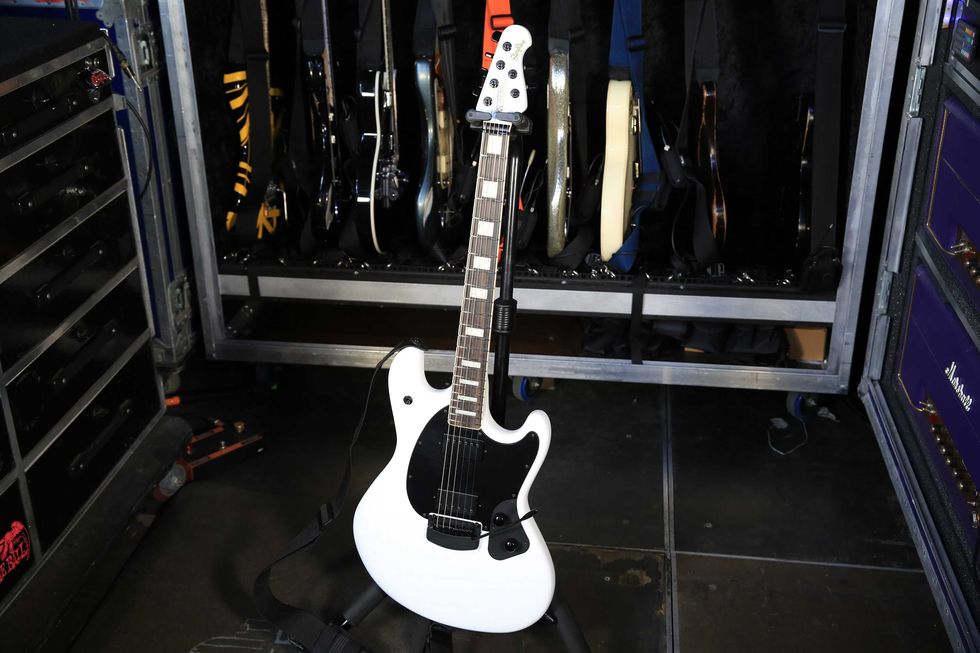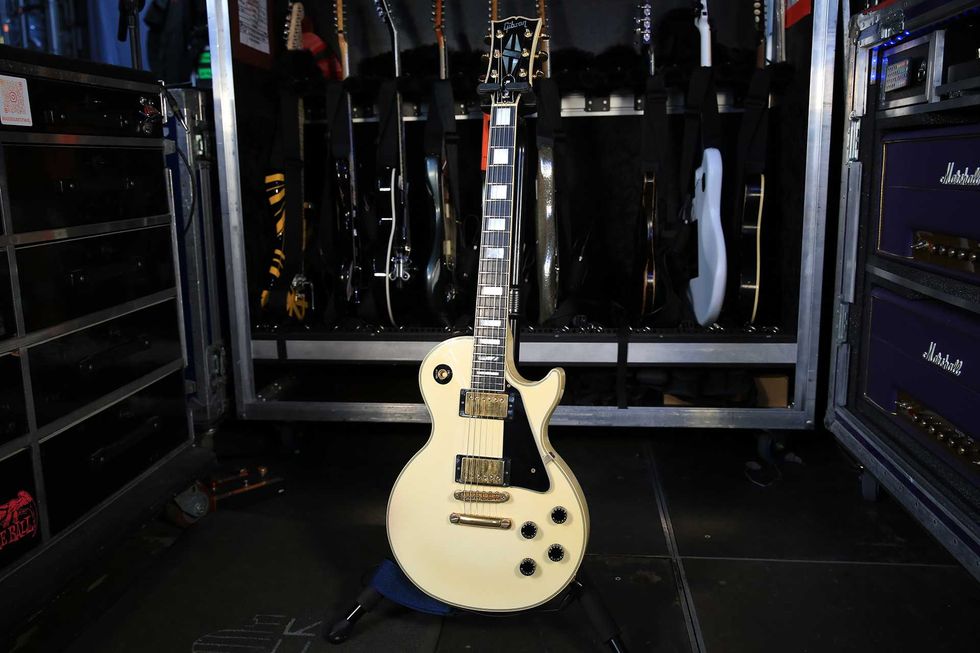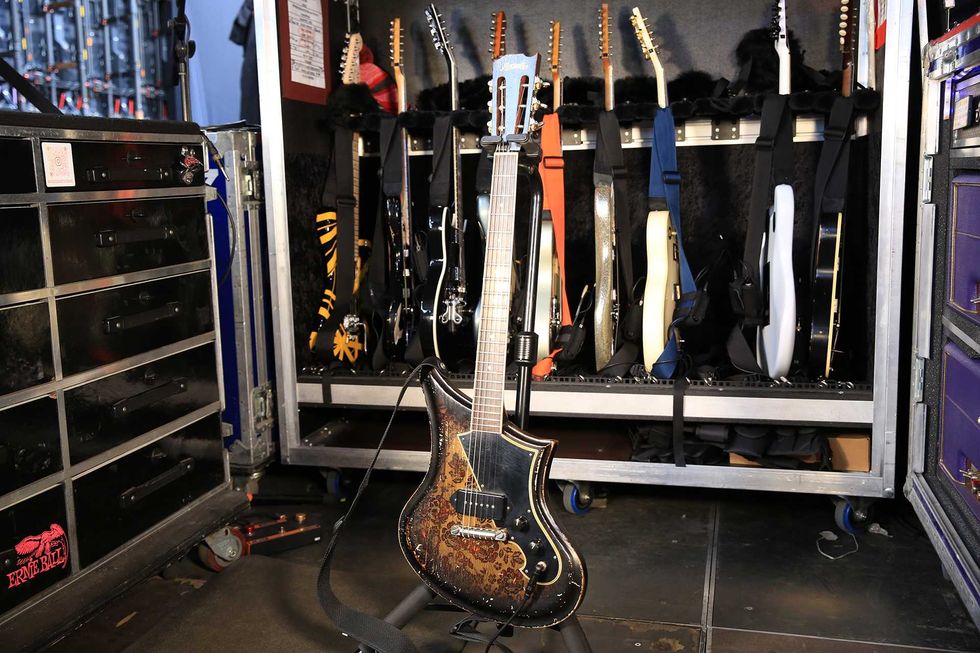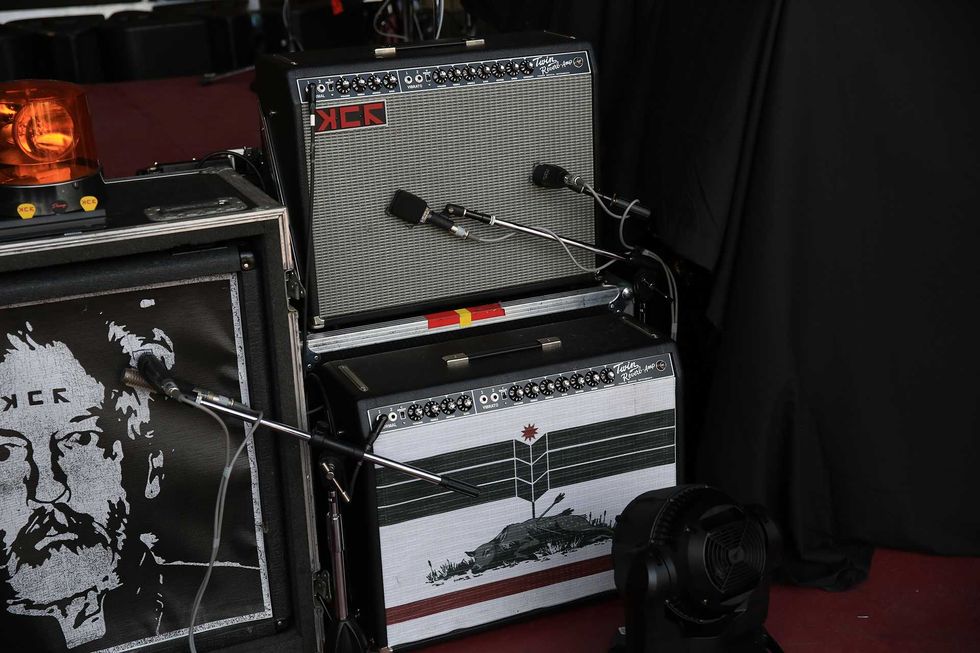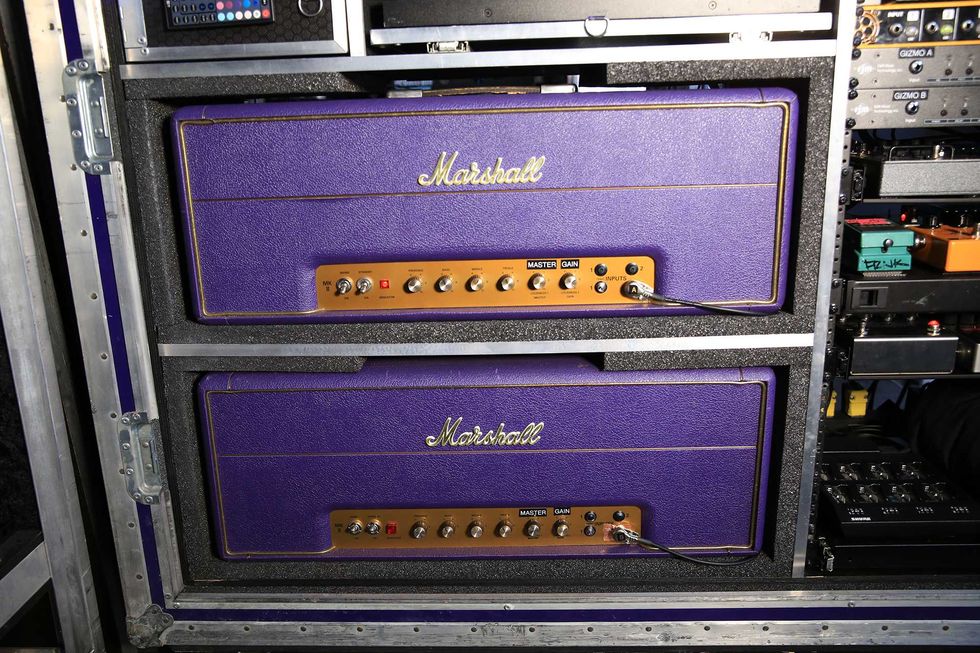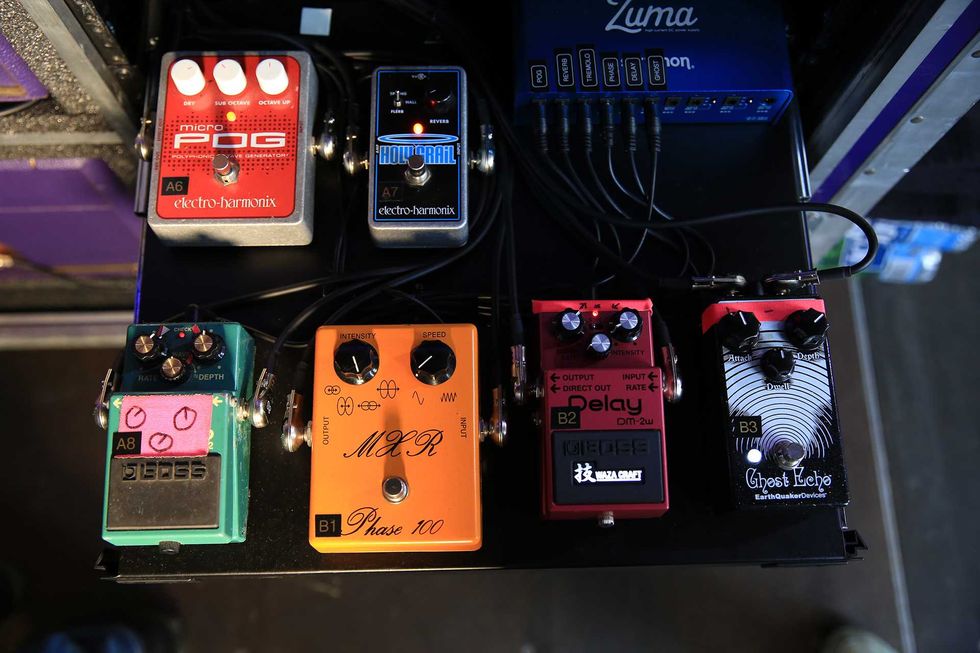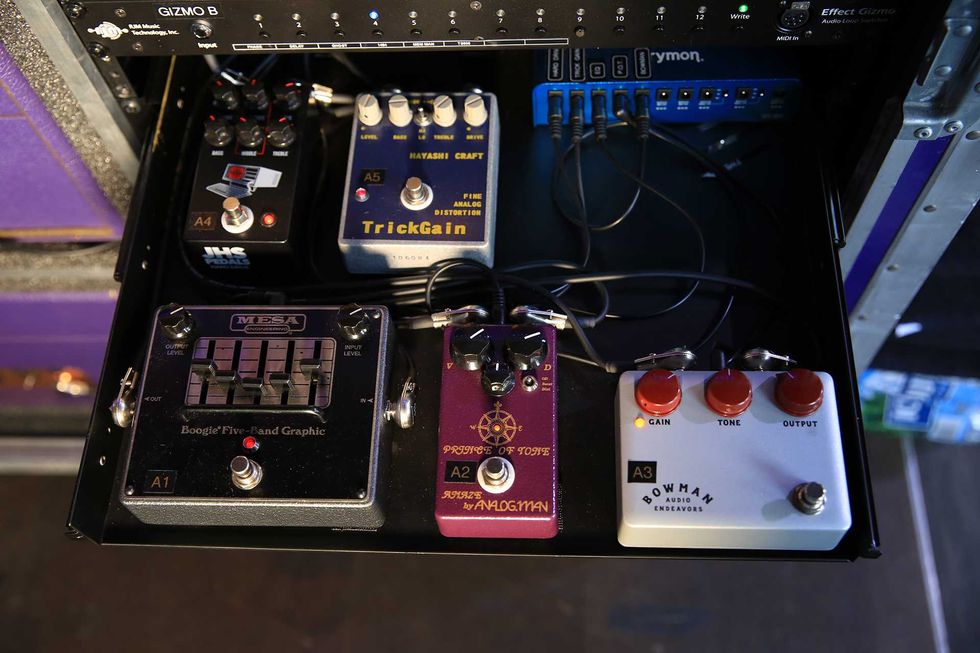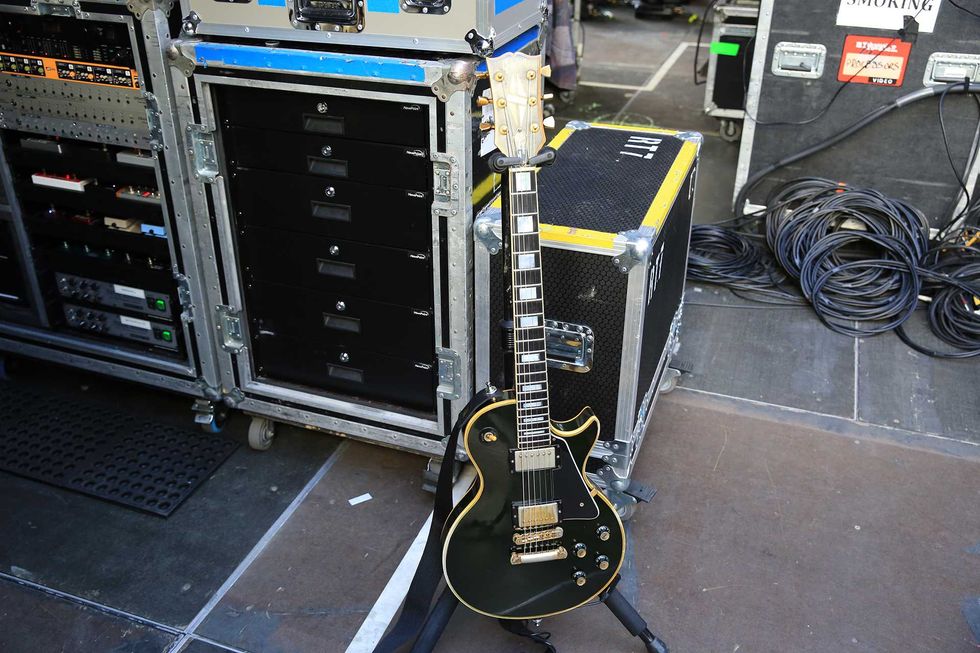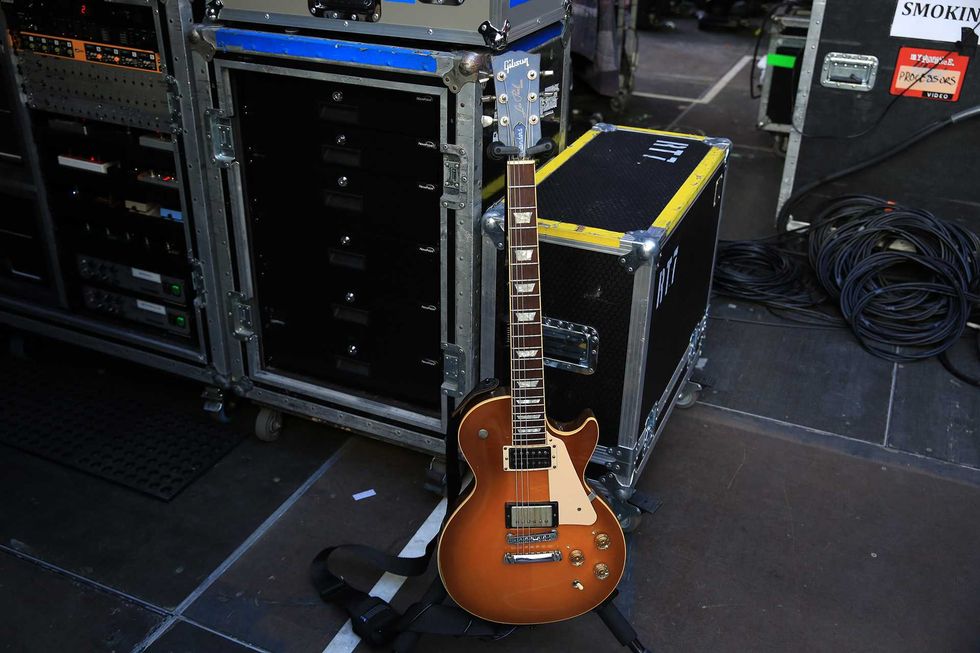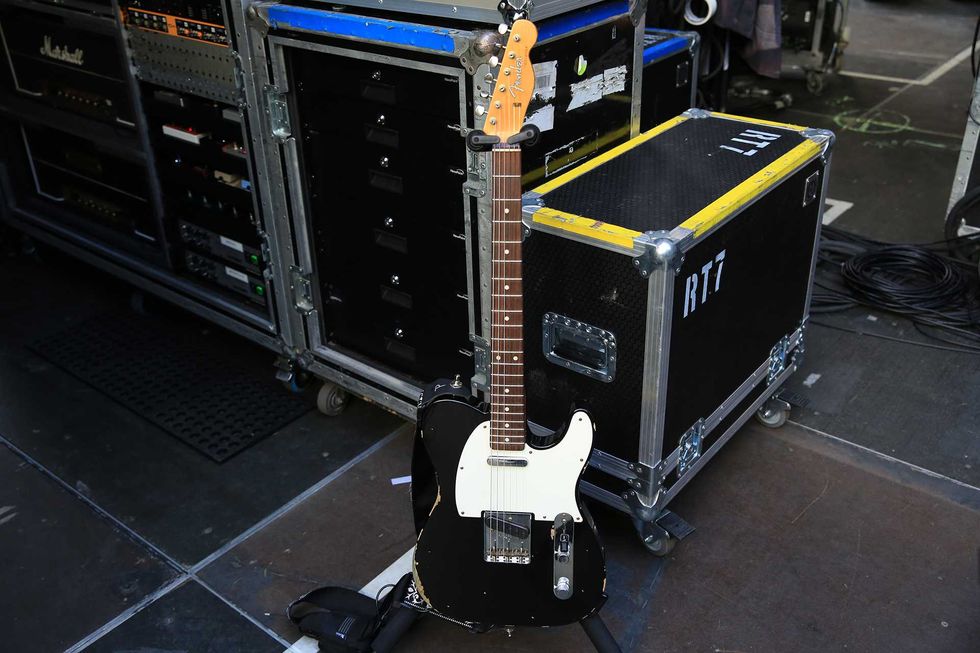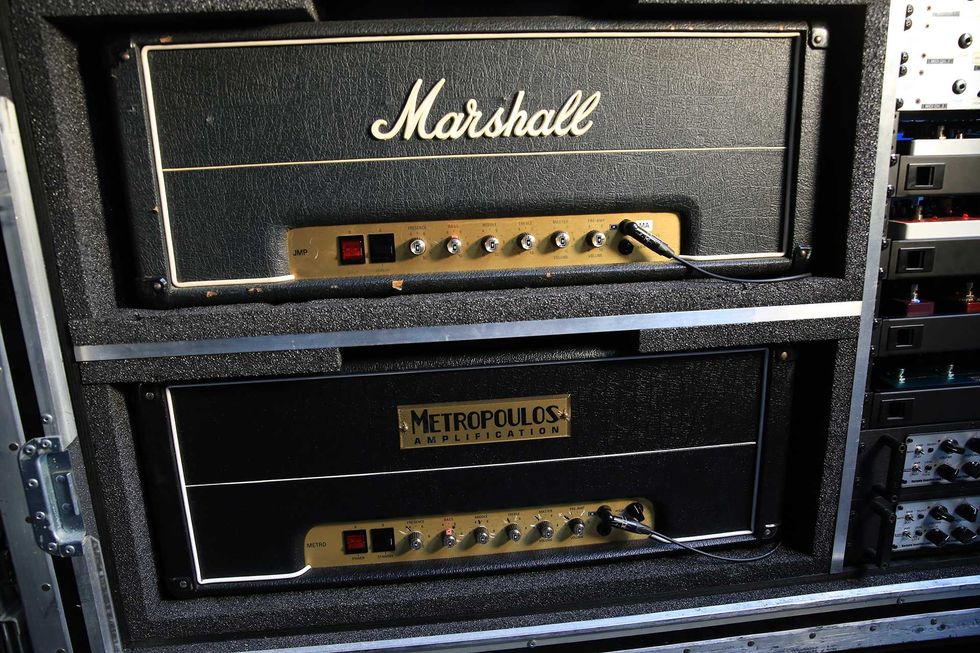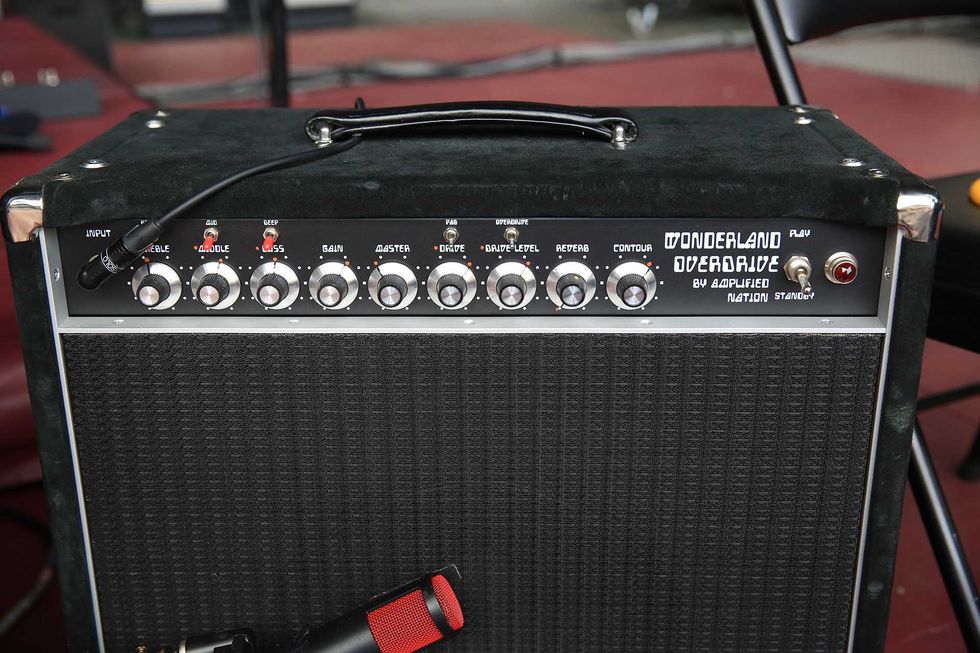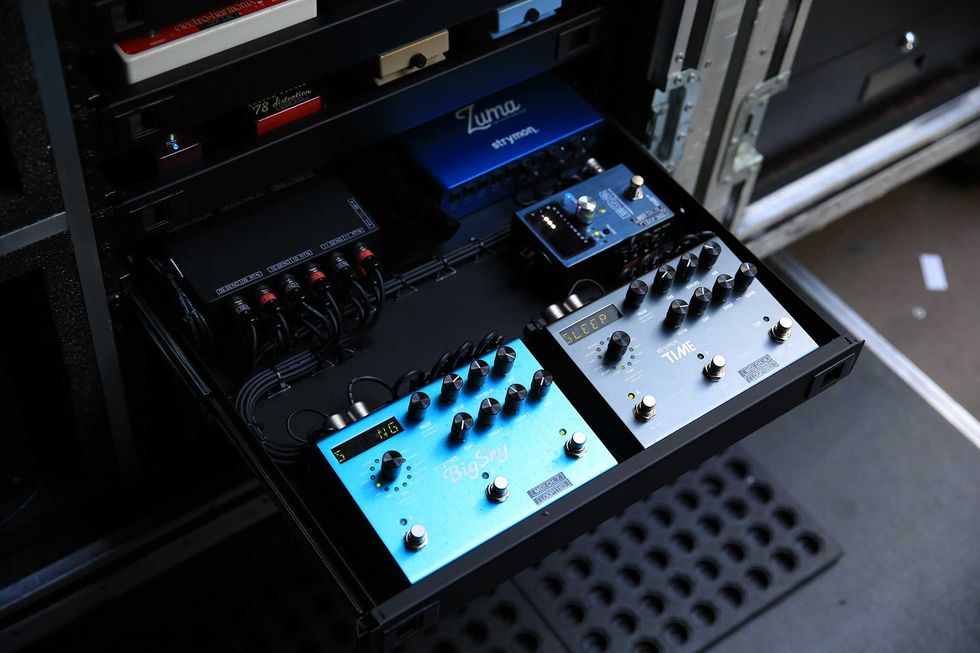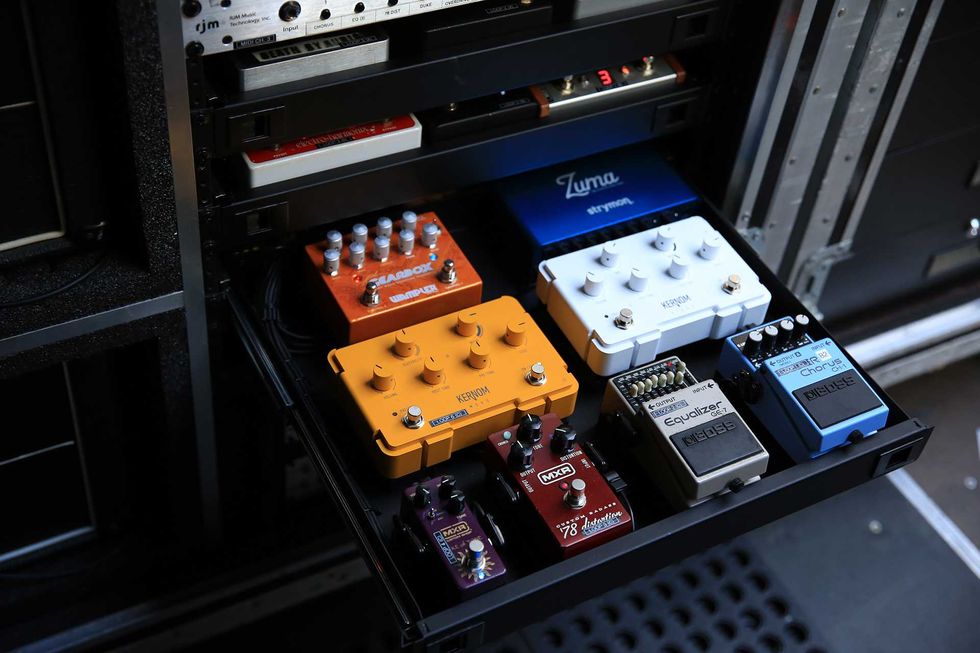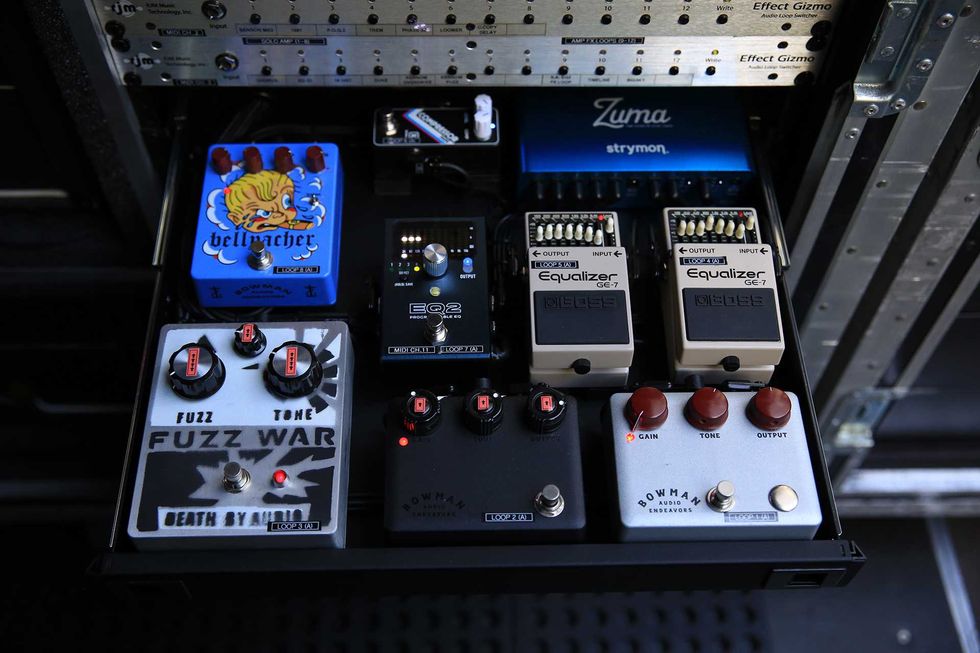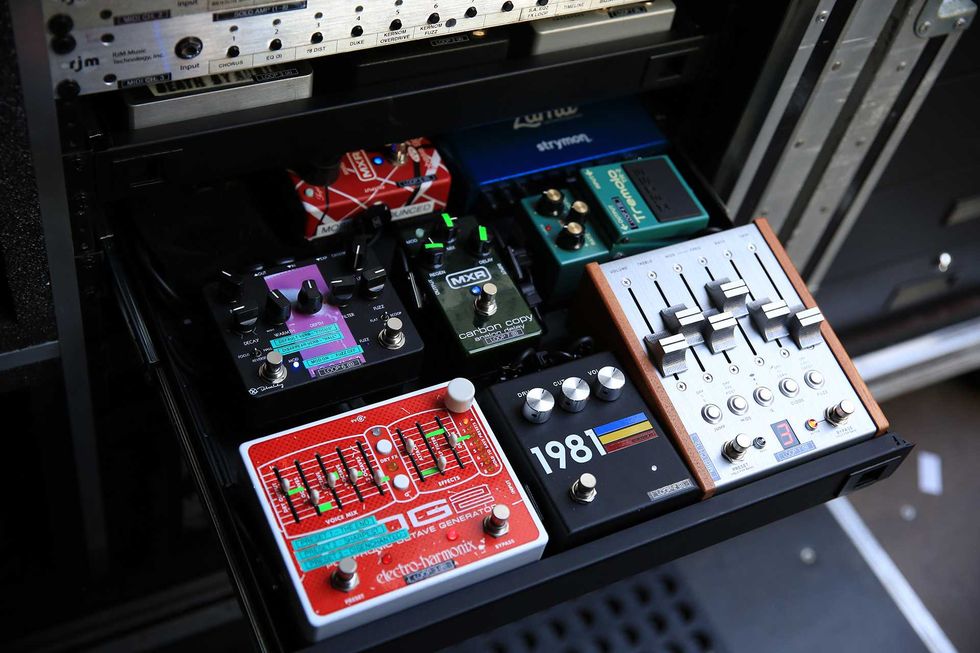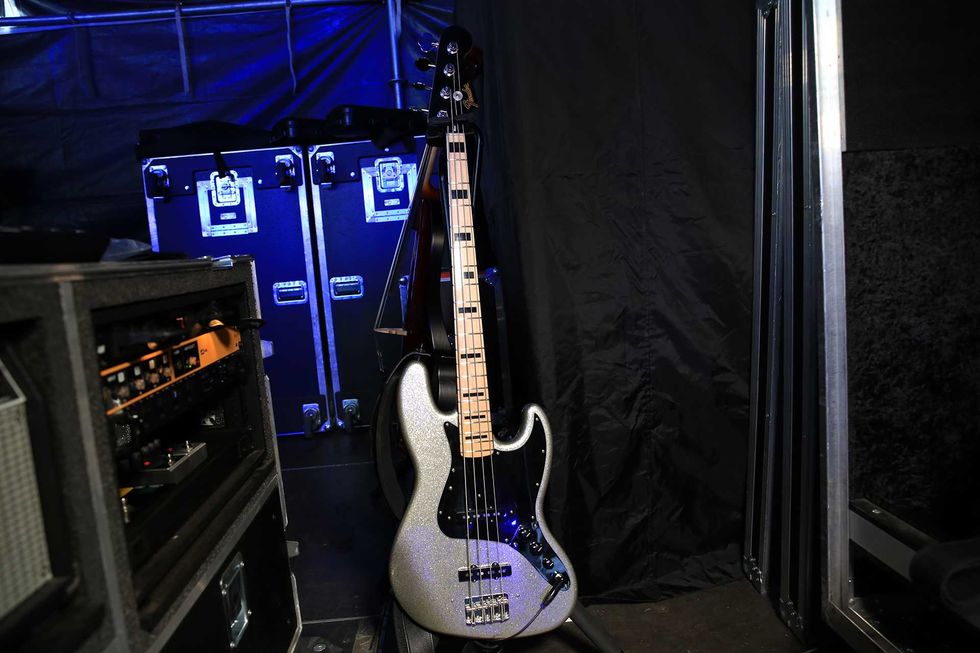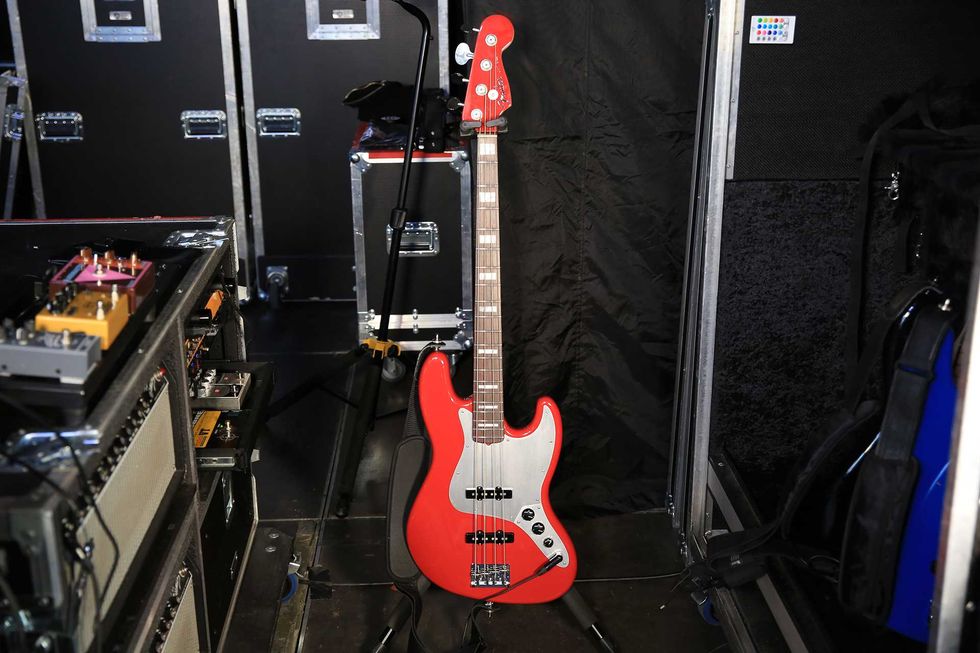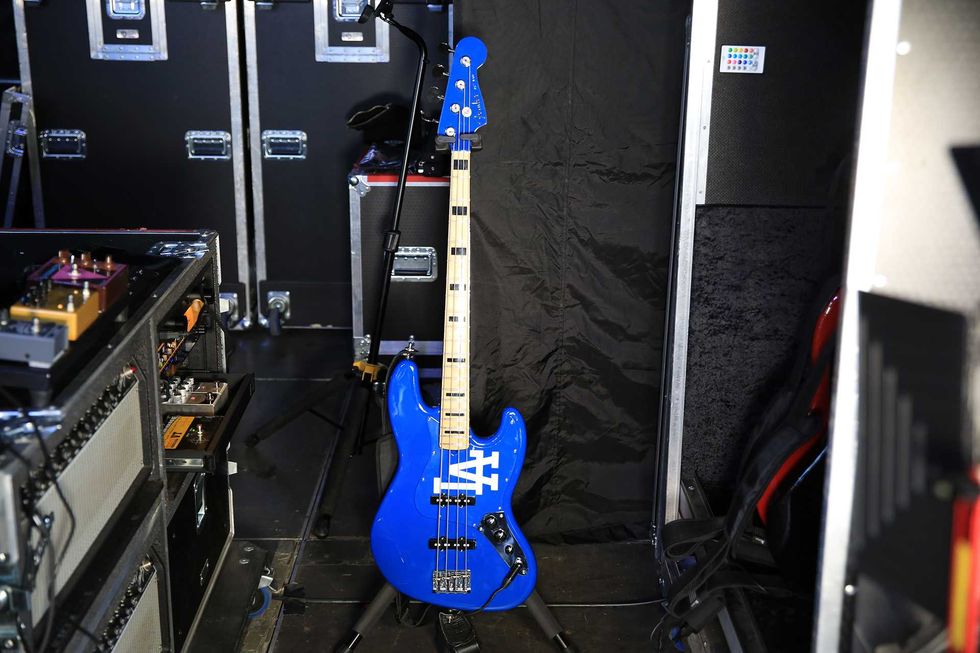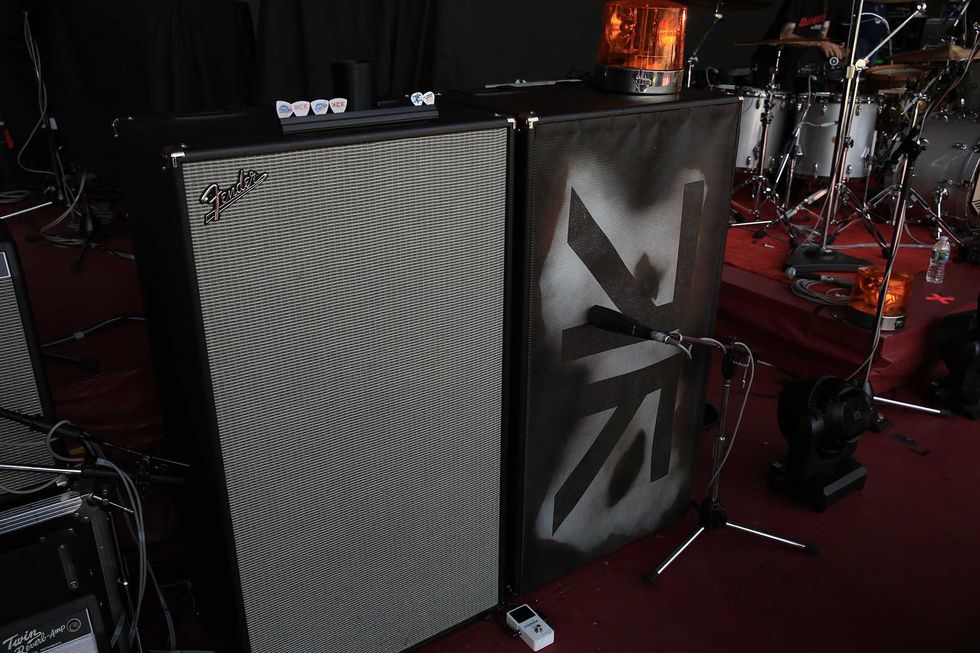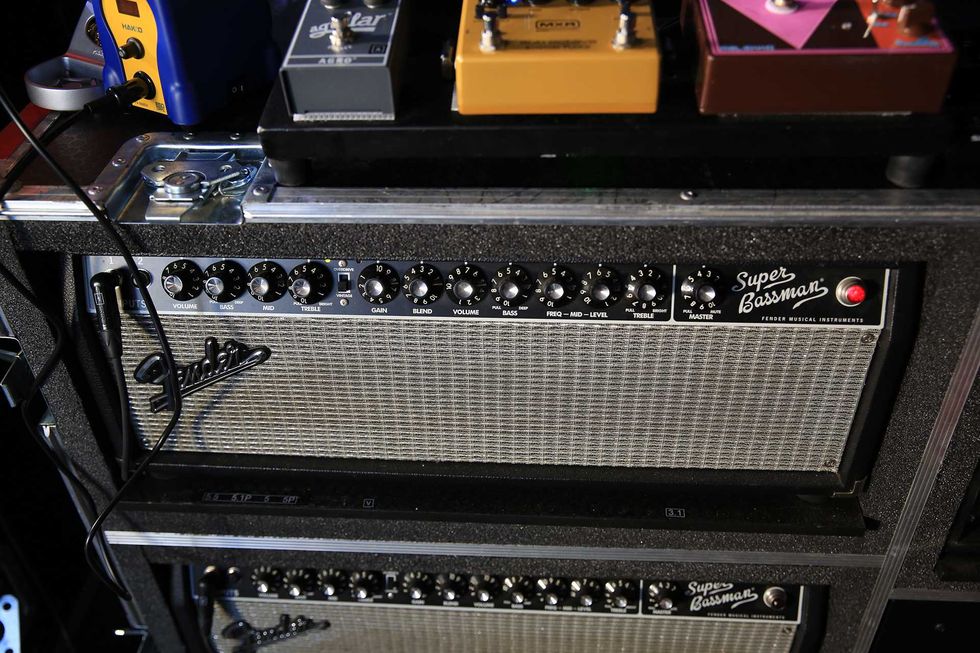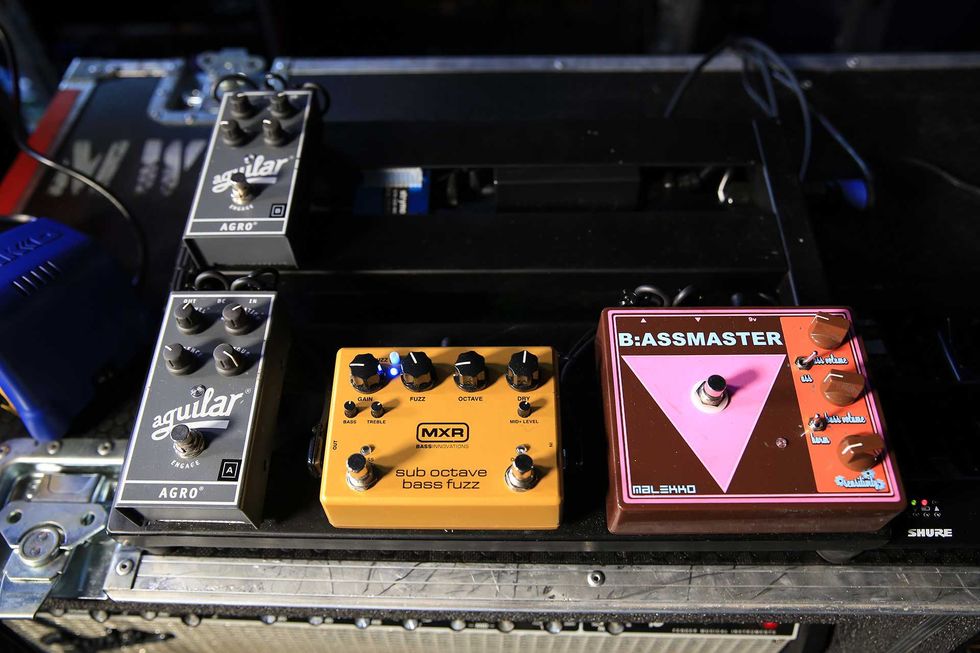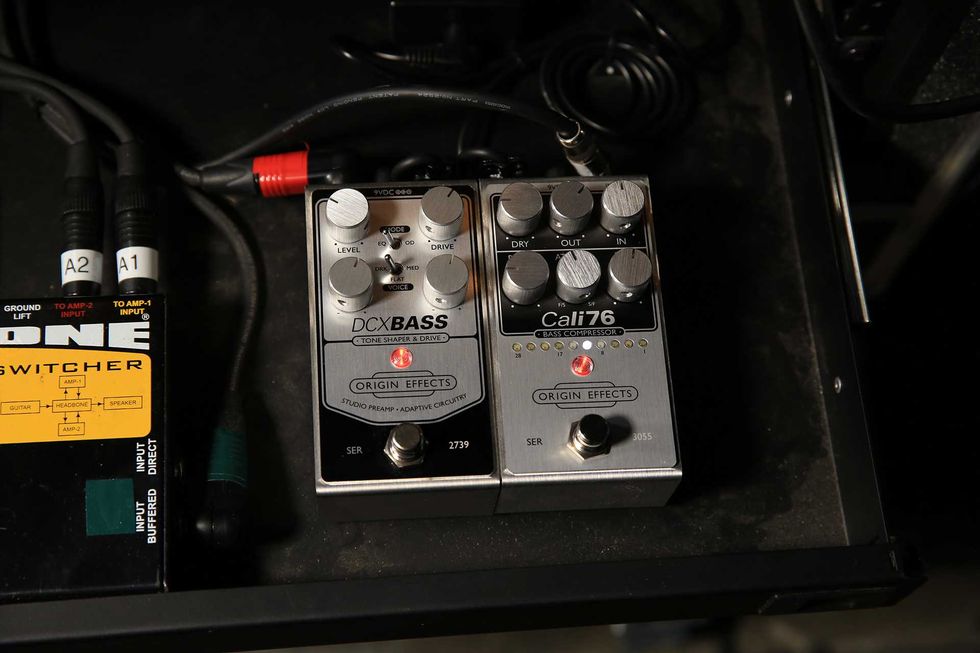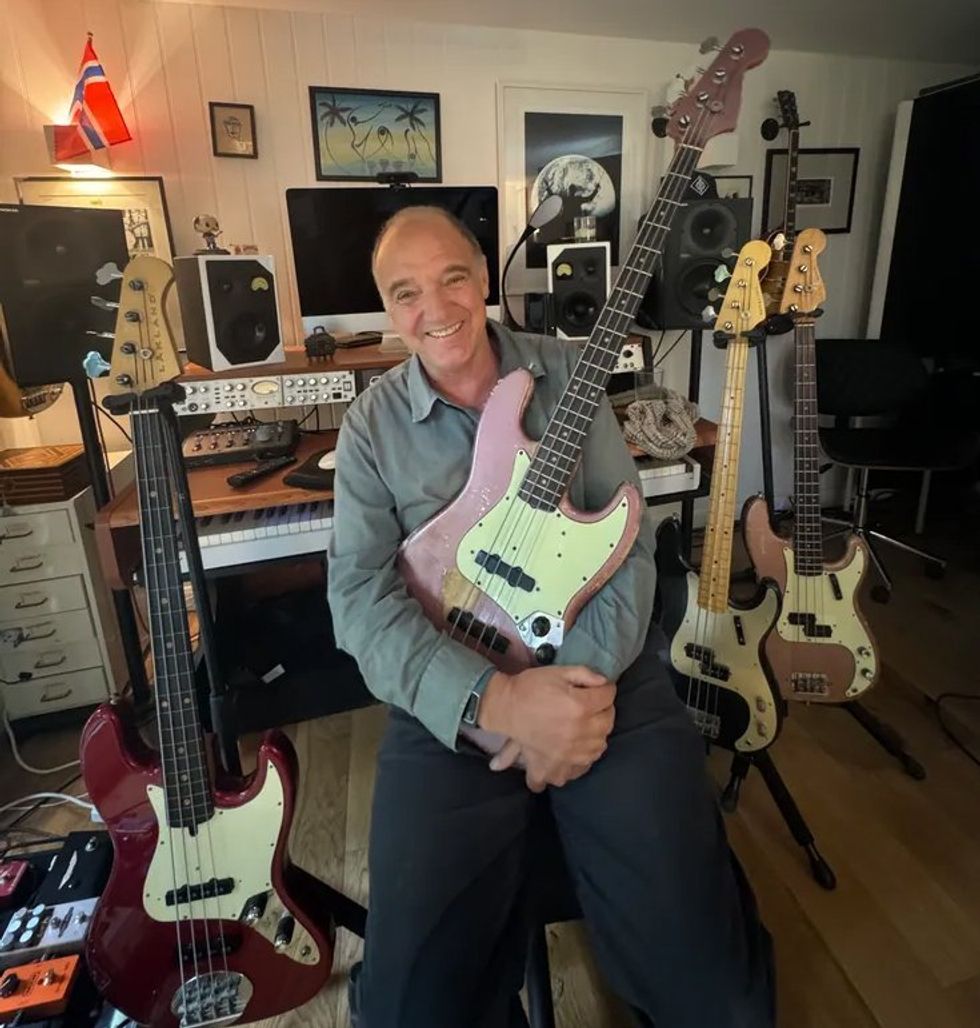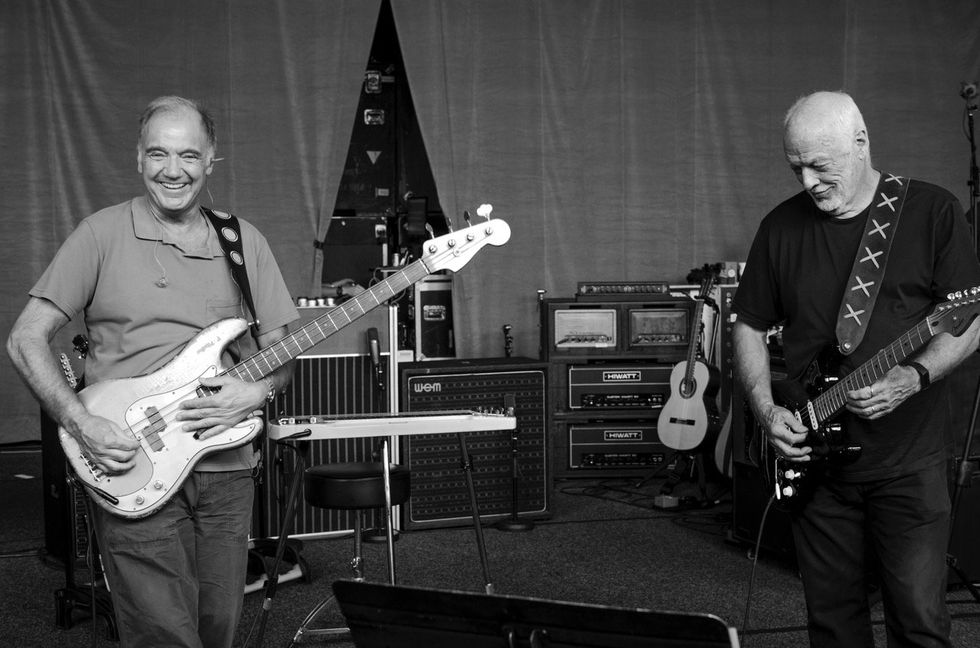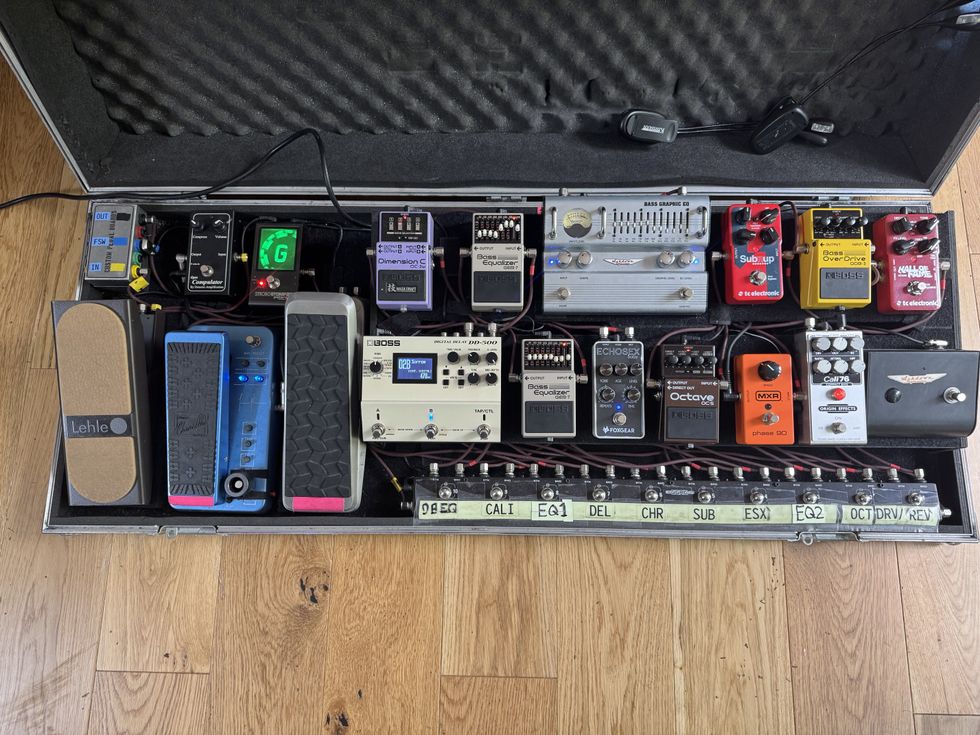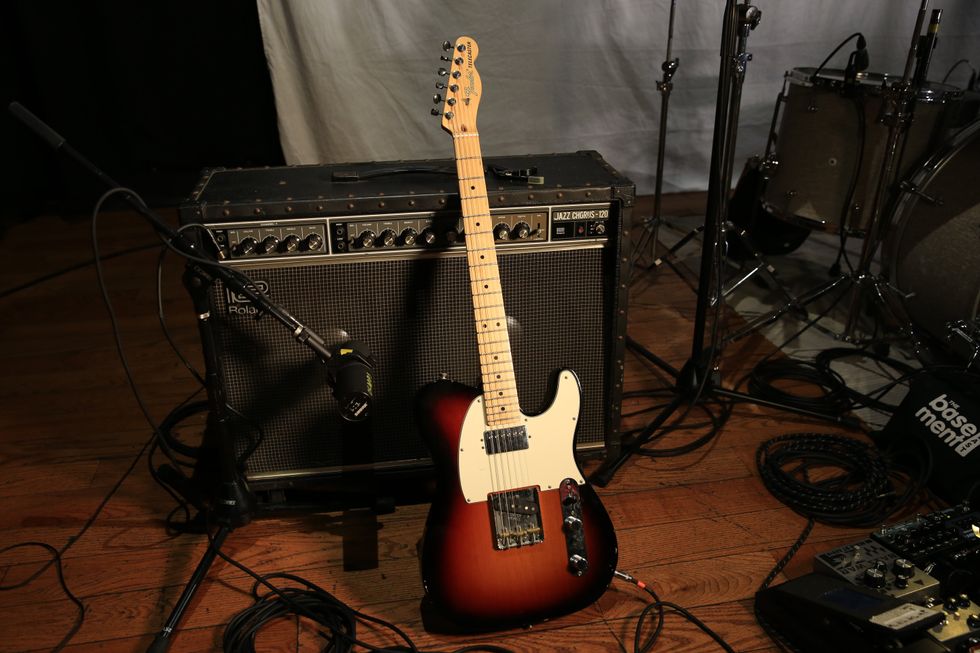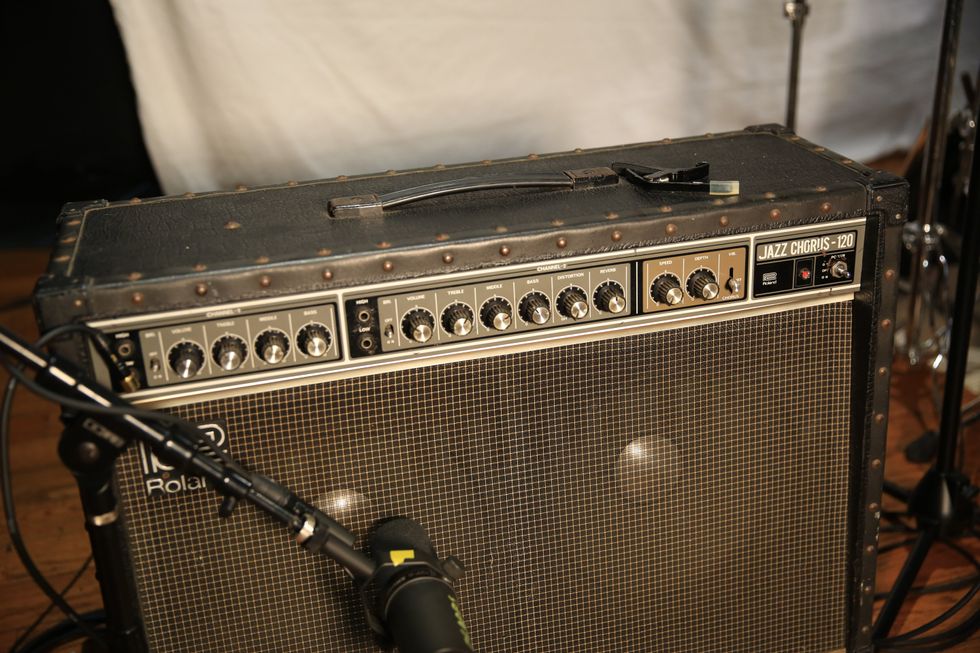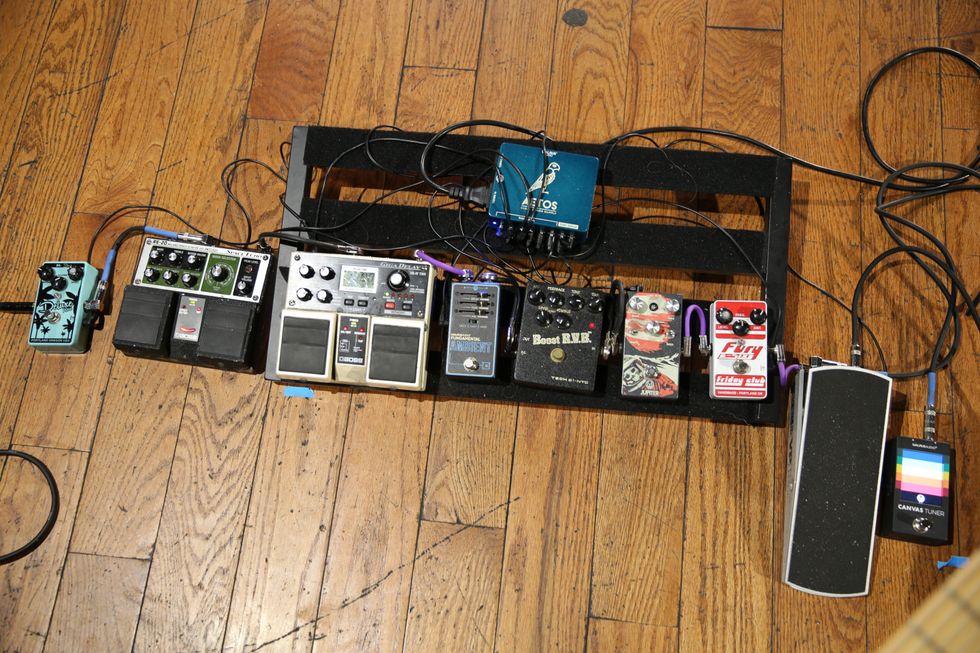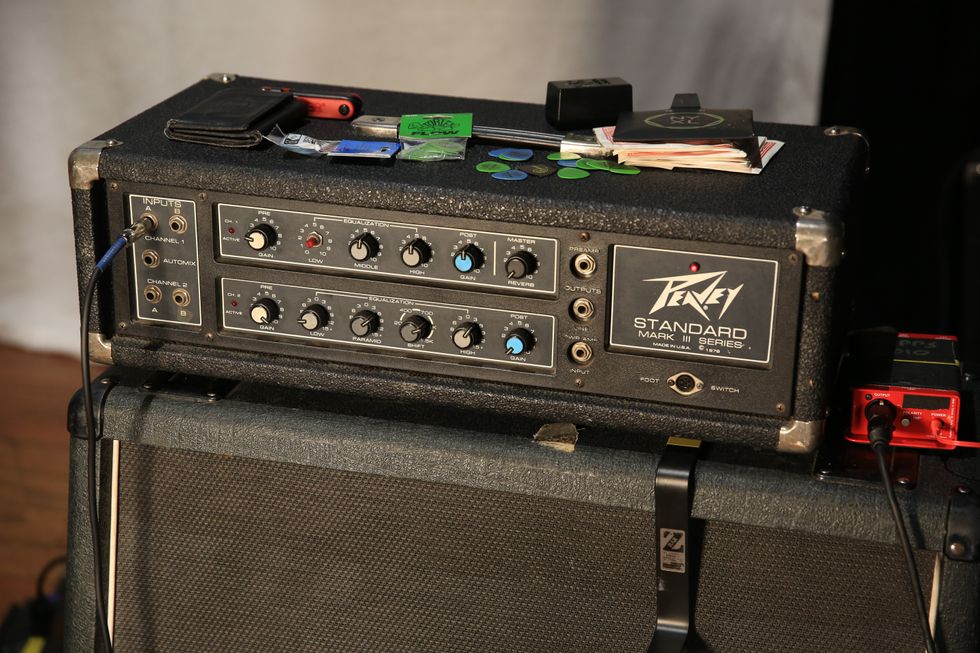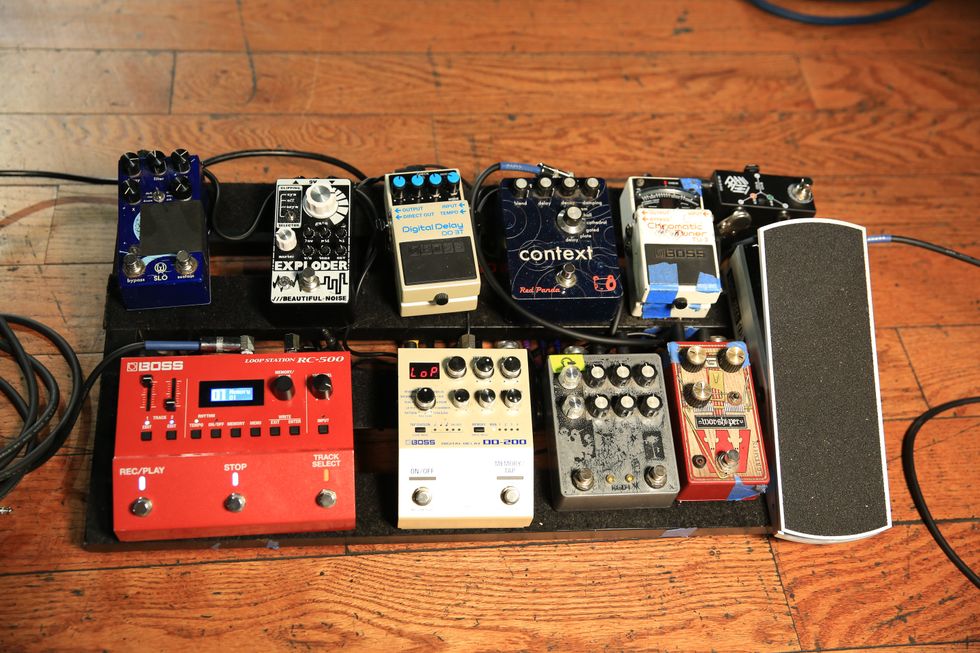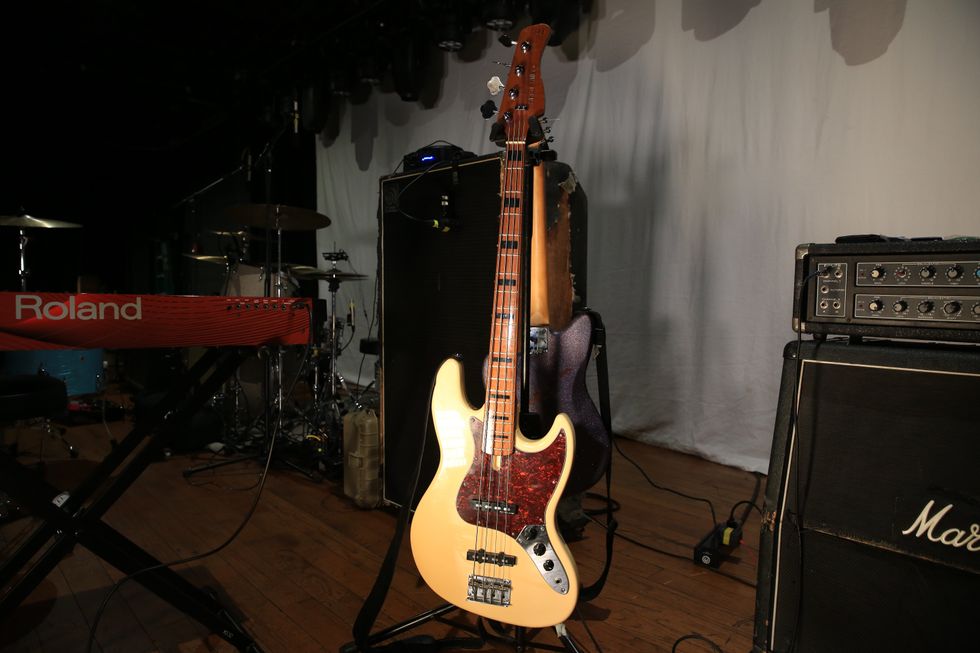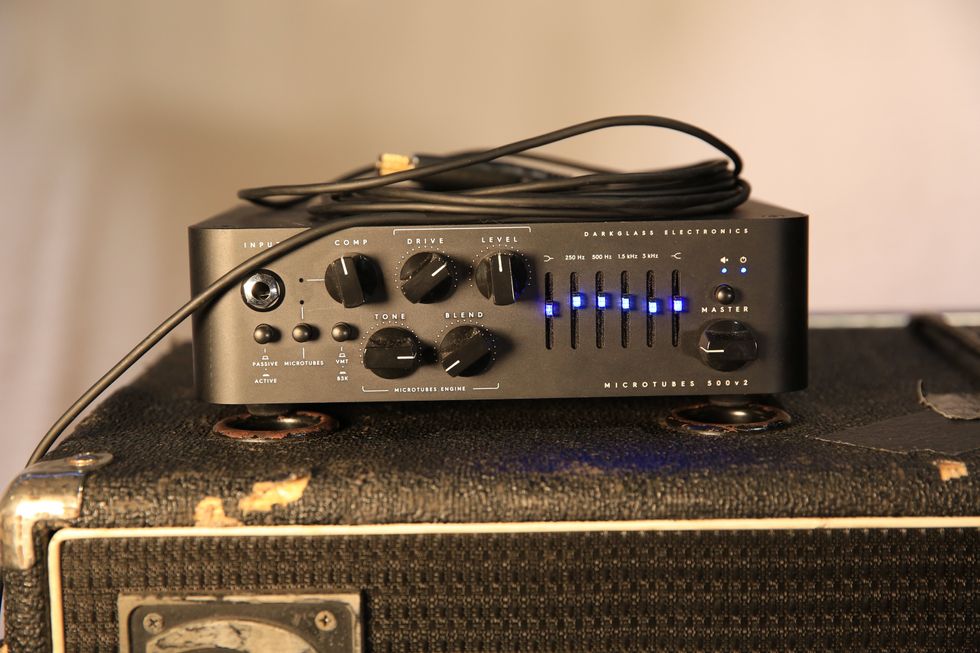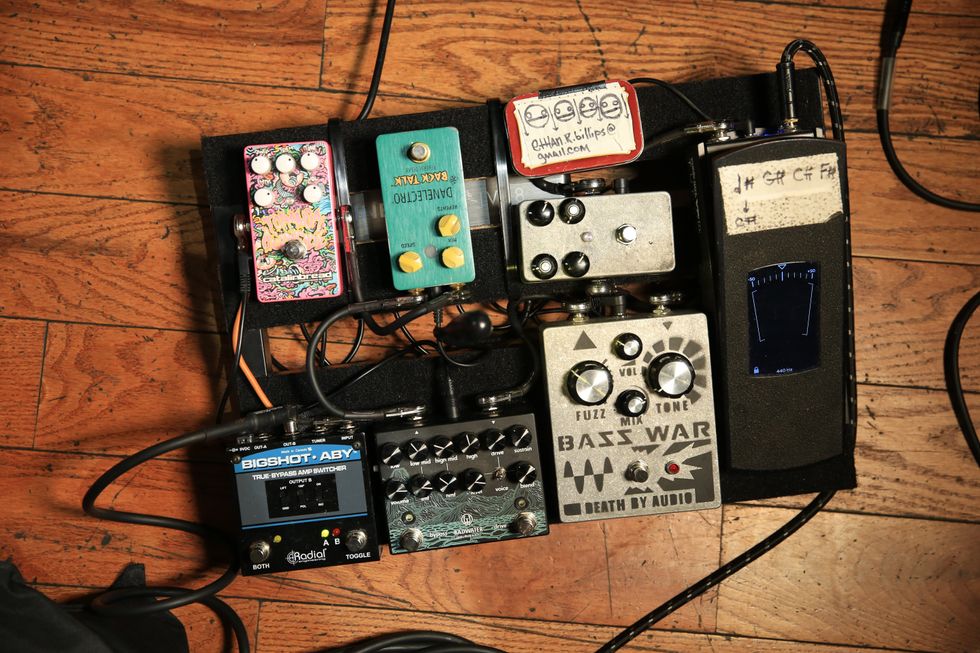Recorded direct using a PreSonus FireStudio and PreSonus Studio One 3
Clip 1 - Pickups blended equally, bass flat, treble flat, and volume is dimed.
Clip 2 - Bridge pickup soloed and slight bump to both bass and treble dials from flat setting.
Warwick basses are known for a signature midrange growl that’s been heard on stages around the world, and for helping define the sound of such players as Norwood Fisher, 311’s P-Nut, and jazzer-turned-educator Steve Bailey. For many players, however, the upper-echelon price of a Warwick instrument built in the company’s Markneukirchen, Germany, facility is prohibitively expensive. Warwick realized this years ago, and introduced the RockBass line—manufactured in China—to bring their body styles and tone closer to the masses. Most recently, they’ve rolled out a bass that doubles the 4-string fun: the RockBass Corvette Basic 8.
Eight Is Enough?
Let’s ponder the merits of an 8-string bass for a moment. The concept isn’t a new one, but an octaved bass is an acquired taste for some. What are the benefits? Creativity, for one. Whether you are a 4- or 5-string player, an 8-string can push your playing in a totally different direction. If your band doesn’t have a rhythm guitarist, an 8-string bass can help fill the holes (just ask Noel Redding and Sting). And if you are an octave-pedal junkie, an 8-string bass might appeal to you since there aren’t many pedals that can truly track like the real thing.
The Corvette body design is popular in Warwick circles thanks to its blend of balance and expression that pushes past traditional body shapes. Our test model arrived finished in nirvana black—the only color available for the Basic 8. It’s a transparent-satin finish that allows just a little bit of the wood grain of the alder body to bleed through, and it’s a fitting color choice for what seems to be a bass that leans toward edgier players.
The Basic 8 has some nice features that run across all the RockBass and Warwick lines. The necks on the company’s 4-string basses are very thin and comfortable, and even though the number of strings has doubled, the real estate hasn’t changed. It’s 1 1/2" at the nut. The bass also houses Warwick’s signature 2-piece bridge, which allows for custom string spacing, and angled tuners engineered for easier access. The thumb-tab access panel is also here, which makes 9V battery changes a breeze.
Unplugged, the bass sounds great. The octaves take a moment to get used to under the fingers, but I was soon playing some riffs I don’t think my digits have ever played before. (There’s that creativity thing I spoke of earlier.) We are entering brave new territory here, and the chime-y goodness emanating from the Basic 8 was a treat even before I plugged in.
Octavius Maximus
Since headphones don’t lie, I started out by plugging the Basic 8 into Presonus’ Studio One 3 recording software via a Presonus FireStudo. The Basic 8’s dual MEC J-style pickups are Warwick’s proprietary creation and they fuel more expensive Warwick models as well. The controls for the active pickups are straightforward: master volume, neck/bridge blend, treble cut/boost, and bass cut/boost. I feel the best place to start for any review is right in the middle, so I set all controls as such, including an equal blend between pickups.
Ratings
Pros:Fast, thin neck. Great midrange sparkle.
Cons:
EQ can be a bit extreme. The thin neck could be a hindrance for some players.
Tones:
Playability:
Build/Design:
Value:
Street:
$899
Warwick RockBass Corvette Basic 8
warwick.de
The bass performed well in this EQ setting. The “Warwick mid” was there with no adjustment needed, and the octaves really sang out. Chords flowed easily thanks to the super-fast, 3-piece neck that feels very Jazz-like, making the bass plenty comfy while supplying extra tone without adding extra width. (This could also be a drawback, however, to some players who need some wider spacing for the extra strings.) The bolt-on neck joint was air tight, the frets and action arrived perfectly set up, and our Basic 8 tester felt fantastically solid overall. I didn’t come across a single rattle or dead spot up and down the wenge fretboard.
When I moved the balance control to the neck pickup, the tones became more robust, although not quite as big as one would expect from a soloed neck pickup. That was helped with a boost in the bass control, which gave the Basic 8 a little more beneath its wings. Let’s remember, however, that we are still talking about a permanently octaved bass, so there will always be a little chime to it. I rolled off all the treble just to compare and contrast, and with the bass in “thuddy” mode (soloed neck pickup, bass dimed, and no treble), there was nothing there for me. So I eased the EQ more to the center for both, and the bass quickly found footing again. It should be said that the treble can be a bit extreme if you’re not careful: Push it too far and you’ll get some noise and sizzle.
The bridge pickup brings the bite and clarity, and achieves some interesting results when worked on its own. The tone is more guitar-like with just the bridge pickup engaged, so if a chordal approach is your thing, this would be your setting. I could imagine some interesting OD and chorused/flanged tones cleverly put together here as well.
The Verdict
Admittedly, I don’t have a ton of experience with 8-string basses. They’ve just never been a part of my arsenal. But in bypassing this type of instrument, I seem to have been missing out on a lot. The midrange qualities of the RockBass Corvette make this a fine model to offer as an 8-string, because a bass that begins as a midrange-heavy instrument lends itself to this setup. Though I found myself using my thumb for slap mode or a plectrum more than my usual fingerstyle leanings, I still enjoyed going flamenco to get some nice chords out of the bass as well. Overall, the Basic 8 is a fantastic way to put your feet in the 8-string pool, and on top of that, it won’t break the bank. Whether you’re brave enough to work an 8-string full-time on a gig is up to you, but if you really want to drive your point home, the RockBass Corvette Basic 8 is a great place to start.
Watch the Review Demo:




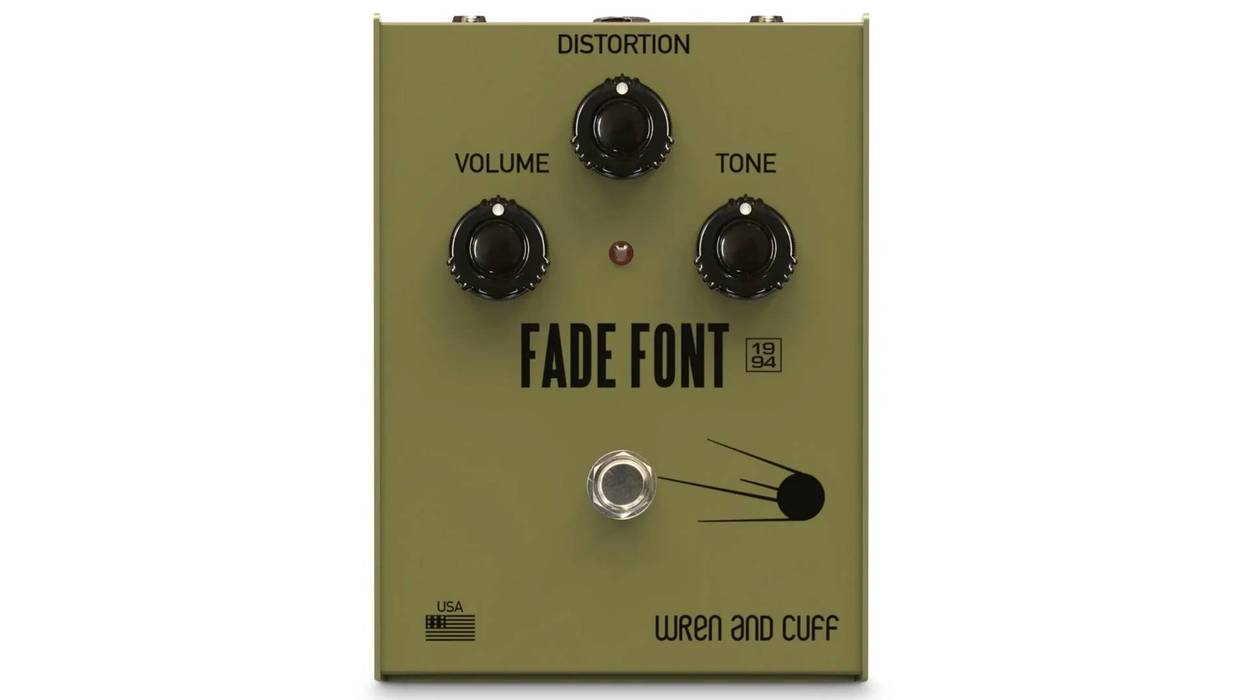



![Rig Rundown: AFI [2025]](https://www.premierguitar.com/media-library/youtube.jpg?id=62064741&width=1245&height=700&quality=70&coordinates=0%2C0%2C0%2C0)












 Shop Scott's Rig
Shop Scott's Rig

